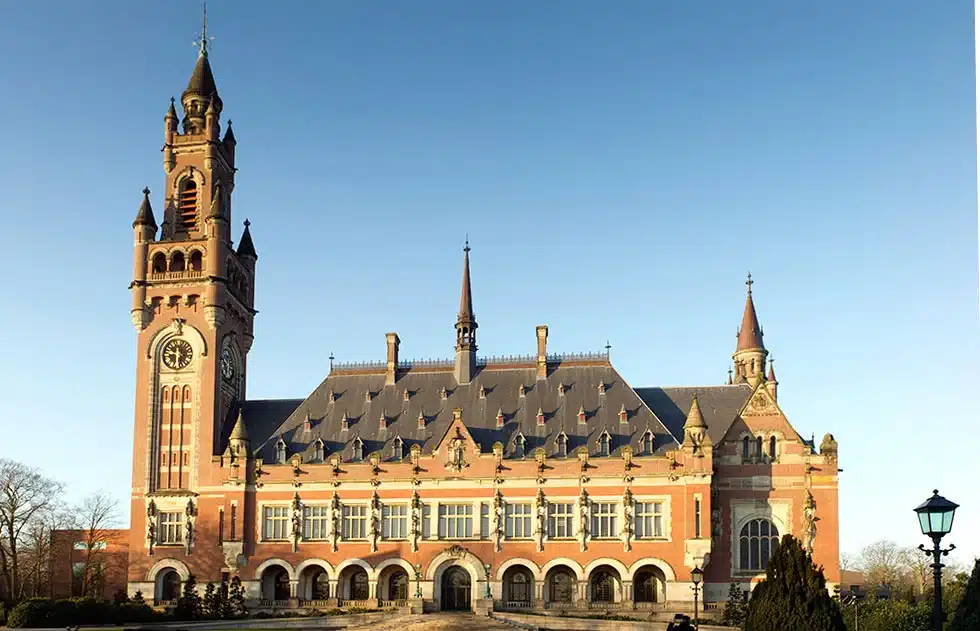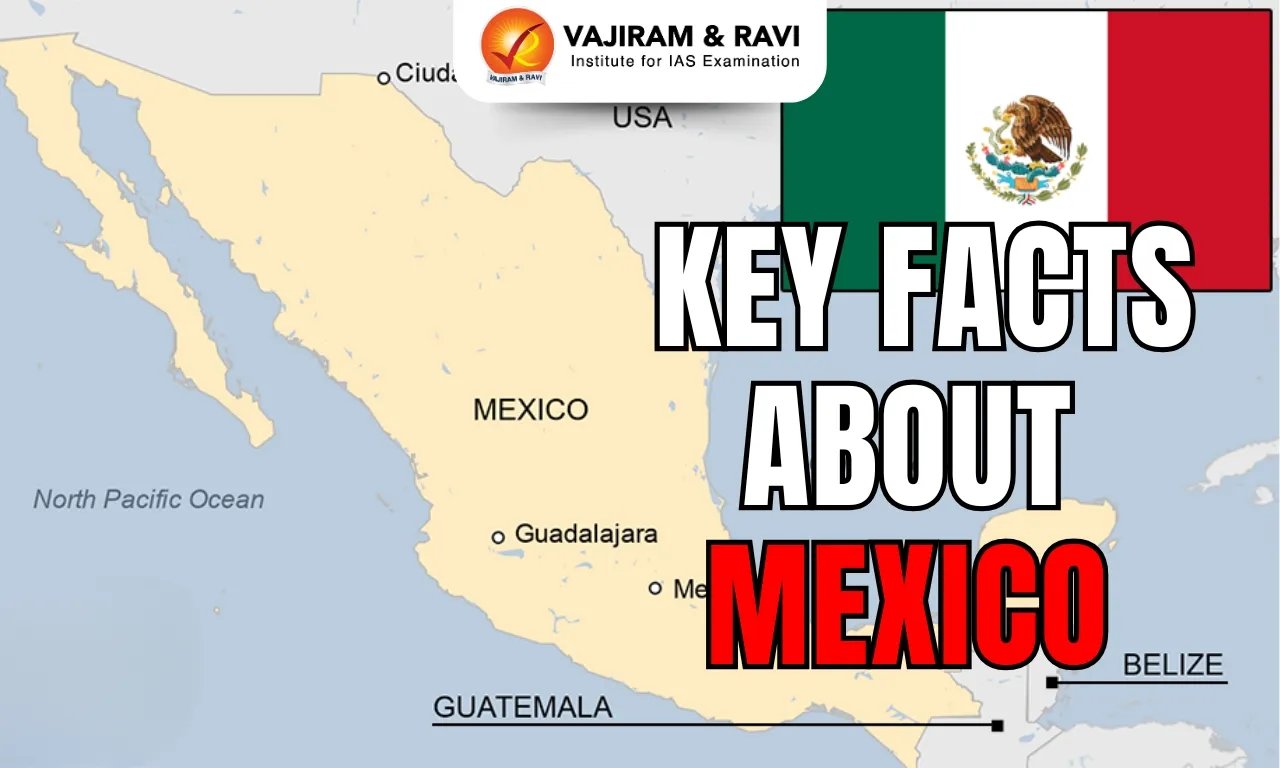About International Court of Justice (ICJ):
- The ICJ, also known as the World Court, is the principal judicial organ of the United Nations (UN).
- It was established in June 1945 by the Charter of the UN and began work in April 1946.
- The seat of the Court is at the Peace Palace in The Hague (Netherlands).
- Of the six principal organs of the UN, it is the only one not located in New York, United States.
- The hearings of the ICJ are always public.
- Official Languages: French and English
- Powers and Functions: The Court may entertain two types of cases:
o First, it can act as a dispute settlement body between two member States in what are called “contentious cases.” Such disputes may concern, in particular, land frontiers, maritime boundaries, territorial sovereignty, the non-use of force, violation of international humanitarian law, non-interference in the internal affairs of States and diplomatic relations.
o Second, it can accept requests to issue an advisory opinion on a legal questionreferred to it by aUN body or specialized agency. These opinions can clarify the ways in which such organizations may lawfully function or strengthen their authority in relation to their member States.
o The court’s judgments in contentious cases are final and binding on the parties to a case, and without appeal.
o Unlike the Court’s judgments, advisory opinions are not binding.
o The ICJ decides disputes in accordance with international law as reflected in international conventions, international custom, general principles of law recognized by civilized nations, judicial decisions, and the writings of the most highly qualified experts on international law.
Composition:
o It consists of 15 judges, all from different countries, who are elected tonine-year termsby majority votes in the UN General Assembly and the Security Council.
o The judges, one-third of whom are elected every three years, are eligible for reelection.
o Once elected, a member of the Court is a delegate neither of the government of his own country nor of any other State.
o In addition, the ICJ Statute allows a state partyto a case before it which does not have a judge of its nationality on the bench to appoint a person to sit as judge ad hoc in that specific case.
o The Court is assisted by a Registry, its permanent administrative secretariat, which is independent of the United Nations Secretariat.
Q1: What is the International Criminal Court (ICC)?
It is the only permanent international criminal tribunal. It was created by the 1998 Rome Statute of the International Criminal Court , and began functioning on 1 July 2002. It investigates and, where warranted, tries individuals charged with the gravest crimes of concern to the international community: genocide, war crimes, crimes against humanity, and the crime of aggression.Unlike the International Court of Justice, which hears disputes between states, the ICC handles prosecutions of individuals. While not a United Nations organization, the Court has a cooperation agreement with the United Nations.
Source:International Court of Justice refuses to dismiss genocide case against Israel
Last updated on December, 2025
→ Check out the latest UPSC Syllabus 2026 here.
→ Join Vajiram & Ravi’s Interview Guidance Programme for expert help to crack your final UPSC stage.
→ UPSC Mains Result 2025 is now out.
→ UPSC Notification 2026 is scheduled to be released on January 14, 2026.
→ UPSC Calendar 2026 is released on 15th May, 2025.
→ The UPSC Vacancy 2025 were released 1129, out of which 979 were for UPSC CSE and remaining 150 are for UPSC IFoS.
→ UPSC Prelims 2026 will be conducted on 24th May, 2026 & UPSC Mains 2026 will be conducted on 21st August 2026.
→ The UPSC Selection Process is of 3 stages-Prelims, Mains and Interview.
→ UPSC Result 2024 is released with latest UPSC Marksheet 2024. Check Now!
→ UPSC Prelims Result 2025 is out now for the CSE held on 25 May 2025.
→ UPSC Toppers List 2024 is released now. Shakti Dubey is UPSC AIR 1 2024 Topper.
→ UPSC Prelims Question Paper 2025 and Unofficial Prelims Answer Key 2025 are available now.
→ UPSC Mains Question Paper 2025 is out for Essay, GS 1, 2, 3 & GS 4.
→ UPSC Mains Indian Language Question Paper 2025 is now out.
→ UPSC Mains Optional Question Paper 2025 is now out.
→ Also check Best IAS Coaching in Delhi

















